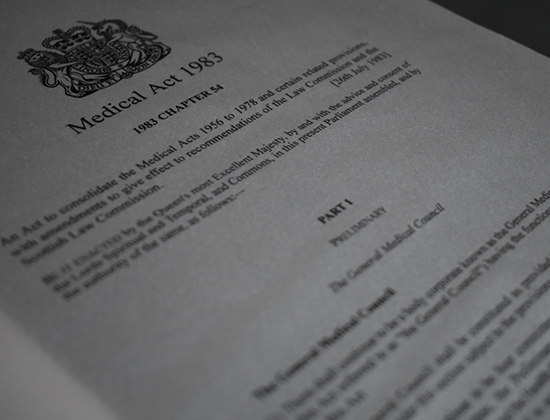Sanctions
Erasure
By Section 35D of the Medical Act an MPTS Tribunal that has found your fitness to practise impaired may (except in a health or language case) erase you from the register. If your name is erased from the register you may not apply for restoration until five years after the date of erasure and only one application can be made in any twelve month period.
The sanction of erasure is imposed for the most egregious of cases, the level of impairment must be so significant that it is inconsistent with the doctor remaining on the register.

A Tribunal must consider whether a lesser sanction is appropriate before it determines erasure from the register.
The Sanctions Guidance sets out a range of factors that the Tribunal may consider when deciding the threshold to erase has been met.
These include cases where there has been a serious departure from Good Medical Practice, or a reckless disregard for those principles, causing serious harm deliberately or through incompetence, abusing a position of trust and violating a patient’s rights, convictions involving sex offences and dishonesty and persistent lack of insight into the seriousness of those problems.
It is instructive to consider some examples of relatively recent cases that have been heard by the MPTS where a Tribunal found that erasure was the only appropriate sanction.
Dr X is a case from several years ago in which a doctor following several consultations had failed to diagnose a terminal illness in a patient and was found to have dishonestly amended patient records, he had also sought to deflect blame to another person. Whilst the missed diagnosis was not deemed not to be misconduct the multiple and repeated dishonest amendments to the records and lack of insight lead the Tribunal to believe any future incidents might similarly be covered up and this was not in fitting with continued registration.
Serious criminal convictions will render a doctor at risk of erasure especially in circumstances where there are sexual offences. Dr Y was pleaded guilty and was convicted of sexual offences involving online explicit conversations with someone he believed to be a child. The sentencing included a suspended imprisonment and community order as well as registration on the Sex Offenders Register for ten years.
The MPTS found there was only limited insight, there were repeated incidents and no conditions were practicably workable. In a similar manner, Dr Z’s conviction involving sexually motivated covert recordings of others resulting in his imprisonment and inclusion on the Sex Offenders Register warranted erasure from the register.


